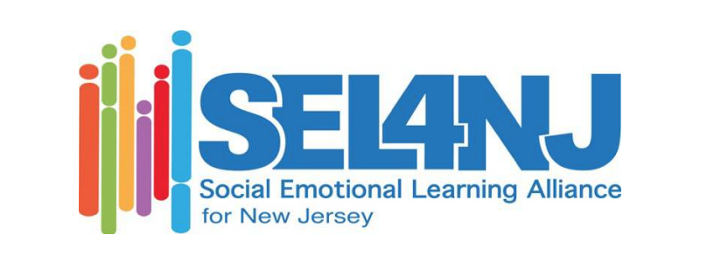By Malavika Eby
Are you happy?
Sorry, I know that’s somewhat of a loaded question. But considering that it is National Happiness Happens Day (8/8) after all, I can’t think of any better time to examine the role of happiness and emotional check-ins within our own lives. So first things first, let’s boomerang back to the question at hand: Are you happy?
Now, how do we answer that? Is happiness a moment-to-moment emotional state—a fleeting feeling—or is it heavier than that—a logical evaluation of our current life satisfaction?
Let’s say I’m seconds away from falling asleep tonight and I ask myself the question.
If I just had the most frustrating conflict with my best friend this evening, but my family, friends and I are all healthy and well, could I still answer, “yes”? If I received a ton of compliments for my new glasses all day, but my grandparent is currently battling a strenuous illness, should I answer with a “no”? And of course, does it even matter how we answer this question to ourselves?
The first two questions I just posed are murky territories, but I believe that the third question can be answered with a resounding “yes.” It DOES matter how we answer the question of whether we are happy or not, even if it’s simply inside our minds.
Most of us severely underestimate the power of our thoughts—these seemingly inconsequential little voices that no one can hear but ourselves. They really can’t cause too much damage, can they? Alas, they can.
In this blog, I want to share with you all two primary lessons about happiness I hope for everyone to understand as part of your emotional toolbox (my new favorite term!).
The first one connects to the aphorism, “Fake it till you make it.” I’m going to be careful with how I examine this particular phrase because the last takeaway I want anyone to receive is to be inauthentic. To preface my ideas, I wholeheartedly believe that emotions deserve to be experienced and expressed, not bottled up or hidden.
With that being said, I weave “fake it till you make it” into my life most commonly when I’m in a default state of emotion. My day is going alright, nothing significant is affecting me, I am not overly energetic nor exhausted, and it is what I would call the most ordinary day in every way possible


It is at this time that I remind myself that I don’t need some unavoidably ginormous, overwhelmingly wonderful reason to call myself “happy.” So, here enters my trick. I check in with myself—are you happy?—and I choose to tell myself, “Yes.” Because why not?
What usually occurs in my personal experience is that this mental agreement that I am happy instantly feeds some sort of gratitude muscle inside me. My mind’s reaction to this positive claim that I am happy is to go, “Huh. How lucky am I to be able to say that.”
So I’m not particularly “faking” anything—I am not denying my emotions to pretend that I am happy—and yet, I’m intentionally stepping into this role of happiness from my default state of indifference to inspire that very feeling inside me. All I need to do is ask the question and then answer in the affirmative, of course, given that I am not already tackling some other complex emotion(s) (in which case, this exercise would be akin to denial, which I don’t recommend).
It’s a little confusing, yes, but I think we sometimes think of emotions as absolutely out of our hands. According to most of us, we can’t help feeling sad when sad things happen to us, just like we can’t control who we fall in love with or when. To this, I pose the alternate theory that maybe we are not as helpless as we might think sometimes. There is a way to both accept the emotions we naturally face, as well as to choose to experience positive emotions however often as we’d like to.
How?—you might ask. The answer is much simpler than I used to think: all we have to do is lower our standards for what invokes happiness.
Now, we can revisit the scenarios I posed earlier. Can we call ourselves “happy” if we had a pleasant day, but we’re tackling some difficult issues with life at large? How about if we had a terrible day, but life is generally going quite alright? When can we count ourselves as happy, and what makes us happy?
The truth is that you decide. You decide! We set our own expectations, and when they are low enough, we can count ourselves as happy as often as we can, and quite possibly anything can make us genuinely feel that way.
In order to explore our personal scales for happiness, I want to touch on what love is, and the interconnection between love and happiness.
To me, love is about being open. We can be curious and willing to see people, places, and things as a whole, for better and for worse, and we can not only accept, but embrace what we do see. As such, being in love with life is about being open to the idea that everything and every experience is beautiful at its core. And of course, how much easier is it to be happy when our benchmarks for amazement are no longer sky-high when the whole world looks more wonderful than it ever did before? Personally, my answer to that question is, “much, much easier.”
So there you have it. On this year’s National Happiness Happens Day and as many days as possible hereafter, I want you to be able to ask yourself whether you are happy—just a brief check-in before you fall asleep—and answer with a resounding, “Yes.” No need to lie to yourself; rather, it’s a matter of readjusting what we expect from life, what the threshold is for making our day.
If we are going through an experience that is stressful, or exhausting, or heartbreaking, or outraging, we need to feel those emotions! Don’t ever hold back on your feelings on account of putting on a happy face, for the sake of public appearance, or convincing yourself that you are okay, or anything else for that matter. But at the same time, in those fleeting moments in between, when there is some space to remember and appreciate the perfect heart-shaped leaf you found in the park, or the baby who stared at you in the grocery store, or the woman who complimented your shoes, or the wonderful book you read last week—do it.
Just like we let one bad experience ruin our whole day sometimes, let one good thing make your whole day. It can make all the difference.





